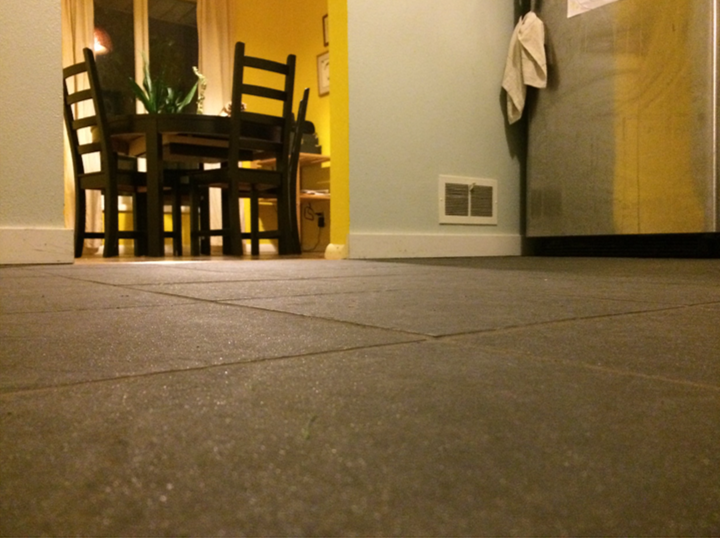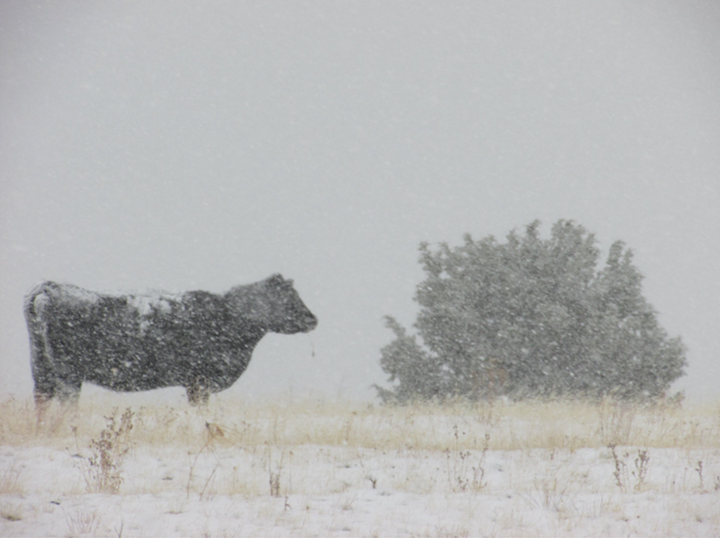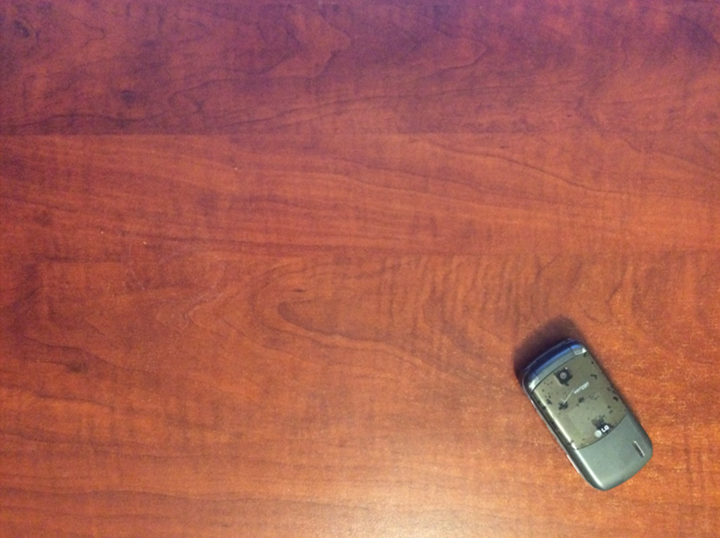Home Sweet Home was first published in China Grove, Issue #4 in the Spring of 2016.
It's included in the short story collection An Unsated Thirst available for PURCHASE.
My wrist clenches tighter and the screw driver twists, pushing the screw deeper into the wood I hold against the door frame. Force and torque, tools and energy, that is all it takes to attach the rough cut pine board to the back door of my house. The edge of the board is broken. Two straight lines created by a hacksaw that never meet in the middle, connected by a jagged break. A hacksaw is not made for sawing boards, but it’s what I have, so I make it work. The jagged middle is a sign of my impatient nature. The sawing of the board with the hacksaw is slow compared to the quick downward thrust of a leg. I smile as the screw spins deeper. A homeowner’s work is never done.
My house is a nice house. It has a nice bedroom. The bedroom is the largest that I’ve ever had. The wasted space is a luxury. My bed is awash in a sea of hardwood. My bedroom has a large closet which does not have doors. Inside are my clothes, hanging in rows and sitting in my dresser. My clothes are not alone inside the dresser. Inside the top drawer is also six Durex condoms, Trojans always seem to break, and a sock stuffed with a huge roll consisting of one-hundred-and-twenty-nine one dollar bills. My wallet always inexplicably fills with one dollar bills to the point where it can barely close. The sock seemed like a good solution. Plus it feels pretty badass to have a huge roll of money, even if it’s only small denominations.
The board is attached and I move back to admire my handy work in the dim light of the garage. The board sits squarely on top of its twin across the top of the door’s window, blocking the inrush of cold night air from outside. Each of the two boards is held on by four screws. Each screwed in by hand. My electric drill no longer works, its battery is aged long past its expected lifespan. The boards block the night air, but they also block the entry of the outside light, which illuminates the patio. Not perfect, but it will work for now. Only a temporary scar on my house.
My house has a nice second bedroom, but I use it for an office. The office is slightly smaller than my bedroom, but still comfortably sized. It also has a large closet, though this one is just full of random junk. Things that need a space, but have no specific place to go. A small futon loveseat sits in one corner. Two bookcases cover one wall. The left one overrun with classics, renowned authors, and books of thought and depth. The right one is filled with Star Wars books, a monument to a youthful obsession. A desk sits in one corner. On top of it is my new PC computer, an impulse buy, an amazing step forward in our world of technology. Inside the top drawer is my laptop. In the lower drawer are my taxes, credit card statements, passport, and social security card. All of the documentation that proves that I actually exist.
I open the door and the cold darkness rushes into the garage. I shiver involuntarily. A pane of glass sits outside on the patio, delicately placed, a large piece broken off one corner. It should be replaced, but it is all I have tonight. Clear packaging tape provides the answer to the question of how to fix the problem. It has the combined attributes of both working and being available. Plenty is still lying around from the move several months ago. It’s a simple fix. Put the two pieces of glass together and tape. Is it enough? Probably, but I put another two pieces of tape across the whole pane in an X anyways. It doesn’t hurt, and it will at least hold everything together if the glass breaks again.
My house has a nice living room. Four floor to ceiling windows wrap a corner, letting in the light each morning. Before moving into my house I use to never own much furniture, but the little bit that I had seemed so alone that I felt the need to purchase it more companions. Two chairs, a couch, and a coffee table. It almost looks like the home of some kind of responsible adult. Two lamps light the room, one tall one in the corner, and one small green one sitting on an end table next to the easy chair that I rarely sit in. The easy chair was once my uncle’s, but he has made a journey and now it is mine. A fireplace sits in the center of one wall, its mantle covered by knick-knacks from my travels. A television and gaming console sit on a stand in one corner. Two closets open onto the living room. One holds games, camping supplies, and other random things. The second holds coats, a vacuum cleaner, and a twenty-two caliber rifle.
I hold the glass up to its place on the door frame with one hand, pushing it up and under the top and left side edging. My other hand picks up and holds the lower edging in place, trapping the window, making it part of the door. The lower and right side edging have been ripped aside. Large pieces of paint from the door hang from their sides. The small nails that once held the lower edging in place slide back into the holes from which they had been wrenched. The paint lines up perfectly with the areas of door once bare. It’s no longer enough to hold it in place. My hammer and three penny nails quickly solve the problem. I reach down and pick up the right side window edging. My belly grumbles. I’m hungry, it is late, already past midnight, and I have not yet had a chance to eat.
My house has a nice dining room. It is small, with only a round table surrounded by four chairs. I am quite proud of the table. You can unlatch a few clasps and pull it apart, turning the circle into a large oval. The extension piece is part of the table, it simply folds out into place, attached by hinges which hide it underneath when not in use. In one corner on a stand sit two ends of the auditory technology timeline. An old record player, another impulse buy, with only two records sitting below it. An old portable unit like the ones I remember from grade school gym class. On top of it sits my iPod, fifteen thousand songs on a device smaller than a deck of cards.
I stop working. I have to pee. I walk back into the house to the bathroom. My house has a nice bathroom. Nice tile floors, nice bathtub, nice toilet. I think about my craftsmanship on the back door, listening to the sounds of bladder relief, a miniature waterfall in my kingdom. My eyes fall on the medicine cabinet, its door open. Two old orange bottles stare back at me. Oxycontin and codeine, relics from past surgeries to straighten my sinuses and rebuild a recessive gum line. I never used their contents, but yet they travel with me from home to home. It’s strange what we keep. I finish my business, flush the toilet, and walk back through my nice house, past open closet doors and through my kitchen. My nice kitchen with all its amenities of modern life. A row of liquor bottles sit on a shelf. Whiskey, wine, vodka, brandy, the ambrosia of a good time. The drawers and cupboard doors all hang open, not enough to let in light, but too much to be considered closed.
I pick up a piece of cardboard and hold it against the door window, measuring it with my eyes. A pair of scissors make short work of it, cutting it down to size. I slide the piece of cardboard between the glass and the boards. An unnecessary gesture, the tape and glass hold back the cold air as well as the window alone ever did, but I do it anyway. I close the door and shiver again. The furnace barks to life, warming the house, but the garage remains cold. The garage is still a mess. It’s the only part of the house that I have not yet organized. Washer, dryer, furnace, hot water heater, modern conveniences in my modern home. A small chest freezer sits along one wall, the wrapped remains of my annual half of beef cocooned within its icy grasp. My bicycle leans on a wall nearby. My tools sit in their box on the floor, good quality tools. A shelf along one side holds camping gear and beer making equipment. It’s top shelf is missing, its wood scavenged for other uses.
I look at the blocked window in my newly repaired door and imagine seeing out to my nice patio and backyard. It’s dark, but in my mind I can see the high fence and shrubs. The abundant plant life which shields my little oasis from the outside world. It’s nice on my patio and in my backyard. It’s secluded. It’s quiet. When I’m there I can almost forget that I’m in the middle of the city or that any other houses are nearby. It is one of the nicest things about my home, but apparently also a curse.
I close the back door and lock it, then do the same with the door between the kitchen and garage. I walk through my silent house, closing cupboards, drawers, and closet doors. Everything is just where it belongs. Many items have taken short little journeys of inches, but nothing is out of place or missing. I take off my clothes, crawl into bed and breathe a quiet sigh. Whoever they were they had taken their time, they had made sure to go through everything, made sure to look into every nook and cranny. Can you call them a thief if nothing is missing, only disturbed? I feel like I should have more fear or anger, but my mind is numb, only a sense of unease. Would I feel better if they had actually taken something, not just gone through everything? My house is a nice house, but it no longer feels like a home. As I drift off to sleep the words of the police officer echoes through my head.
“That’s weird.”





